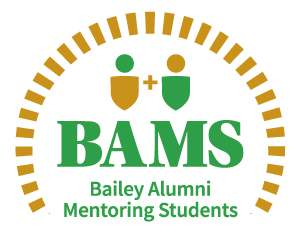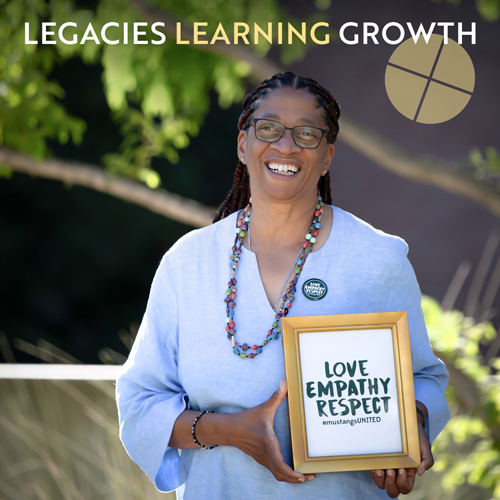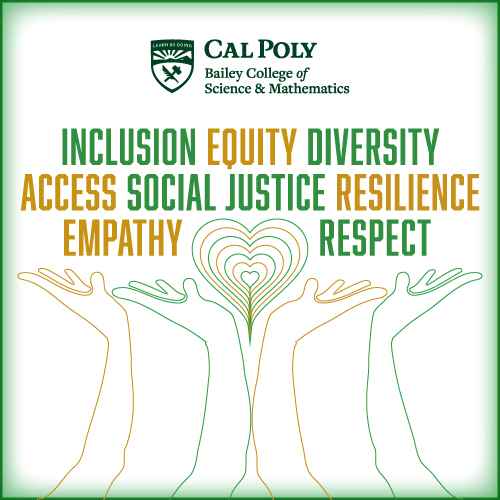Addressing Health Inequities for Underserved Communities
 (From left) Professor Marilyn Tseng, public health student Frost Research Fellow Edgardo A. Hernandez and Frost Research Scholar Daisy Rojas discuss their research presentation titled, "Findings from a community needs survey in Santa Maria and Guadalupe." Photo by Alexis Kovacevic
(From left) Professor Marilyn Tseng, public health student Frost Research Fellow Edgardo A. Hernandez and Frost Research Scholar Daisy Rojas discuss their research presentation titled, "Findings from a community needs survey in Santa Maria and Guadalupe." Photo by Alexis Kovacevic
PUBLIC HEALTH RESEARCHERS CONNECT DISENFRANCHISED COMMUNITY MEMBERS TO BETTER SERVICES AND RESOURCES
APRIL 2024
by nick wilson
"They (field workers) are those who suffer the most regarding health and housing.
~Participant responding to question in survey administered by Mi Gente, Nuestra Salud researchers.
What might keep someone from going to the doctor for several years? What are that person’s foremost concerns, not just medically, but in life in general? How can they best be connected to medical services moving forward?
These are the questions students and faculty in the program Mi Gente, Nuestra Salud — or My People, Our Health — work to answer. The project, housed in Cal Poly’s Center for Health Research and launched in 2020, addresses health inequities through direct outreach to community members in the northern Santa Barbara County communities of Santa Maria and Guadalupe.
Mi Gente, Nuestra Salud is modeled on the Jamkhed Comprehensive Rural Health Project, which has achieved significant results in rural India. The system-oriented approach connects underserved and disenfranchised communities to resources, integrating them into decision-making processes and coordinating strategies to address health disparities.
“We think of it as a movement for health ownership to give more people who usually aren’t in the decision-making process a voice,” said Marilyn Tseng, a kinesiology and public health professor. “We’re introducing a ripple to the system in even the smallest ways. But we know that doesn’t change with the snap of your fingers. It’s going take some work.”
 (From left) Cal Poly Mobile Health Unit researchers and staff hold a free open clinic in Santa Maria, California. (From left) Medical Director Vicki Charbonneau; phlebotomist Rubi Solano; public health Professor and Center for Health Research Director Suzanne Phelan; kinesiology student Elena Kraemer; Mobile Health Unit Coordinator Cristina Macedo; Dignity Health resident Anthony Reyes, MD; Frost Research Fellow and public health student Nathalie Zamora; public health student Isabella Araoz; and Mixtec interpreter Paola Ligario. Photo by Izzy Kelly
(From left) Cal Poly Mobile Health Unit researchers and staff hold a free open clinic in Santa Maria, California. (From left) Medical Director Vicki Charbonneau; phlebotomist Rubi Solano; public health Professor and Center for Health Research Director Suzanne Phelan; kinesiology student Elena Kraemer; Mobile Health Unit Coordinator Cristina Macedo; Dignity Health resident Anthony Reyes, MD; Frost Research Fellow and public health student Nathalie Zamora; public health student Isabella Araoz; and Mixtec interpreter Paola Ligario. Photo by Izzy Kelly
The work began with a survey and interviews of mostly uninsured women and farmworkers in the neighboring cities of Santa Maria, with a population of about 110,000 and Guadalupe, of about 8,600. The research team made its surveys available in English, Spanish and Mixtec so community members could respond in their native language. By meeting people at places they visit in their daily life, student researchers gathered 102 survey responses. Roughly one in four of those respondents participated in follow-up interviews.
The surveys and interviews addressed broad concerns and challenges around healthcare access, lack of affordable housing, drug and alcohol use, job security and mental health. The team discovered that some community members hadn’t visited the doctor in years due to cost, transportation and language barriers, among other factors.
Survey results also revealed that inadequate housing was the largest unmet need followed by other challenges related to community safety, drug and alcohol use, mental health, worker safety and cost of living.
“Many talked about poor housing conditions such as infestations and crowding,” Tseng said. “Often we think of lack of housing and poor housing conditions as social problems. But they have everything to do with health.”
One survey respondent commented: “They are charging us a lot, and they don’t want to fix anything in the house. We have to do everything — even fix the drain. Another said, “They (field workers) are those who suffer the most regarding health and housing.”

And through a Circle 4 grant from Cal Fire, the project is adding trees to 75 disadvantaged communities all over California, including hot valley communities such as Bakersfield and Fresno, involving 50 to 60 trees “of really interesting species,” Ritter said.
“I really wanted to do research in an area that I could connect to and something that I could relate to and understand. I enjoyed the work of trying to get people’s voices heard who wouldn’t typically have a voice in the community — and trying to provide resources.
Daisy Rojas
Public health undergraduate and Frost Research Scholar whose hometown consists of more than 80% Latino residents.
Daisy Rojas, of Santa Paula, California, helped ensure the accuracy of Spanish translations in the data analysis. The fourth-year, bilingual public health major and Frost Research Scholar, who joined the study in her second year at Cal Poly, said people spoke of “houses that are literally falling apart and that was all they could afford. This becomes an issue of, ‘Do I put housing first? Food? Job security?’”
To close these systemic gaps and ensure access to quality healthcare with community support, Mi Gente, Nuestra Salud partners with Marian Regional Medical Center and the nonprofit SLO Noor Foundation, which provides free medical, dental and vision care to those who qualify. The program also incorporates the services of the Cal Poly Women’s Mobile Health Unit.
The mobile unit offers healthcare and operates as a clinic on wheels, serving community members near where they live. Faculty, staff and students who offer services through the unit analyze research data to help inform care. For example, research shows that delayed or foregone care is often linked to chronic diseases, including cancer, obesity, heart disease and diabetes.
“Findings have led us to specifically address these issues in the mobile health clinic,” said kinesiology and public health Professor Suzanne Phelan who serves as the scientific director for the Center for Health Research. “We provide behavioral counseling in diverse languages to ensure understanding of ways to reduce pesticide exposure at work, promote healthy eating and weight and reduce food insecurity.”
Mi Gente, Nuestra Salud also established an advisory board with leaders from community health centers and government agencies — helping researchers establish connections to foster ongoing relationships, funding, policy decisions, treatment, social justice and community empowerment.
These relationships are important because, as the surveys show, despite wide nets, coverage through state and federal programs such as the Affordable Care Act don’t eliminate all structural barriers and root causes of health inequities.
The research team shared results of this multi-pronged approach in an article published in the journal Progress in Community Health Partnerships in 2022.
To celebrate community and include the survey participants in the study’s results, the researchers held an art exhibit featuring photos that showcased culture, people and study findings.
“The pictures and our analysis showed common themes,” Tseng said. “The art exhibit was so useful and appreciated by the community.”
Rojas’ hometown consists of more than 80% Latino residents. She wants to work in public health and summed up the spirit and the ongoing commitment of Mi Gente, Nuestra Salud: “I really wanted to do research in an area that I could connect to and something that I could relate to and understand. I enjoyed the work of trying to get people’s voices heard who wouldn’t typically have a voice in the community — and trying to provide resources.”
![]() RESEARCH CONTACTS:
RESEARCH CONTACTS:
Suzanne Phelan, sphelan@calpoly.edu
Marilyn Tseng, mtseng@calpoly.edu
Listen to a podcast about the Mi gente, nuestra salud program
Read the publication related to this research:
Learn more about Cal Poly's Center Health Research.
Funding contributors to this research:
- Cal Poly’s Strategic Research Initiatives Program
- William and Linda Frost Fund
- California Breast Cancer Research Program
- California Association of Free and Charitable Clinics




